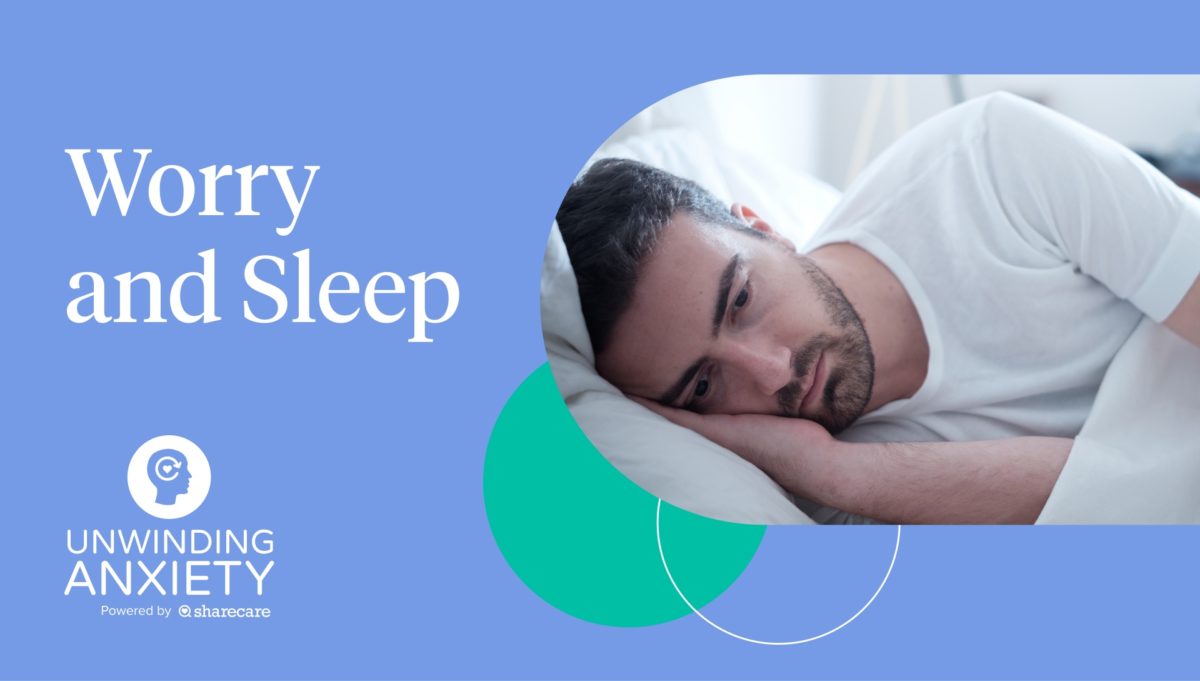Sleep calm and carry on: Understanding how anxiety prevents us from getting a good night’s sleep

Who among us hasn’t been there? Staring at the ceiling in the dark, we beg our minds to slow down and for sleep to wash over us. We look at the clock, watching time, and our opportunity for rest slip away. We think about disagreements with coworkers, family obligations, random interactions at the grocery store, bills that are due. The list goes on and on.
Disrupted sleep negatively impacts not only our waking lives, but also our health. The health implications of sleep deprivation go beyond puffy eyes and a caffeine habit; sleep deprivation can lead to increased risks of kidney disease, heart disease, diabetes, high blood pressure, and stroke – just to name a few.
Sleep disturbance is experienced by as many as 1 in 3 Americans today, and much of it is associated with worry, a feature of anxiety disorders. In a frustrating cycle, worry makes it difficult to get to sleep, which then triggers more worry.
I see this all of the time in my clinic as a psychiatrist: As soon as they get into bed, my patients’ minds start racing with worry-filled thoughts. After tossing and turning for a while, they get anxious that they won’t get enough sleep, which of course revs them up and makes it harder for them to get to sleep.
So what can we do to beat the cycle and get a good night’s sleep?
New research from my lab at Brown University shows mindfulness training could be the answer we’ve been seeking. The study, which was just published in Psychosomatic Medicine, assessed whether our mindfulness-based program, Unwinding Anxiety, could reduce worry and to what degree that would affect the quality of sleep in participants.
Participants in the study were assigned randomly to one of two treatments. The first group continued their current sleep-related treatment plans while the second added the digital therapeutic program Unwinding Anxiety. Participants were then evaluated for any treatment-related changes, such as worry, worry-related sleep disturbances, and anxiety through a self-reported questionnaire completed after two and four months in the study.
The study results were clear: Participants in the control group showed a 6% reduction in reported worry-related sleep disturbances, whereas the participants who added Unwinding Anxiety experienced an encouraging 27% reduction. By simply adding mindfulness training, participants were more than four times as likely to report an improvement in their sleep.
Once the initial test period was completed, we gave the control group access to Unwinding Anxiety. After two months of usage, this group saw a 29% reduction in worry-related sleep disturbances.
Our previously published studies have suggested Unwinding Anxiety helps reduce anxiety in both people suffering from generalized anxiety disorder and anxious physicians, but this new evidence further supports the case for the same mindfulness principles behind it to address sleep disturbance. In fact, with the broad impact of anxiety on our physical and mental well-being, I believe the research merely scratches the surface of the wide-ranging benefits of our digital therapeutic framework for our overall health.
Thanks to the support of our enterprise partners, approximately half a million individuals have access to Unwinding Anxiety at no cost to them, providing an important therapeutic resource for all areas of life associated with anxiety. Unwinding Anxiety also is available to the public and can be found in both the App Store and Google Play.